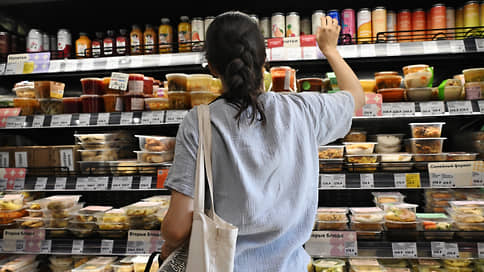« Tasteville » actively reduces the number of stores

In the first quarter of 2025, the number of stores at Vastiville decreased by 10.5%. This is the highest rate among large retailers. Even at the “traffic light”, which ended up in the center of high -profile inspections by Rospotrebnadzor, the volume of retail space in January -March decreased by only 2.6%. In the « Tasteville », which in the past years, on the contrary, increased the number of points of sales, the prevailing dynamics is explained by the need to close unprofitable stores. And experts talk about changing a network strategy focused on the development of online sales.
Grocery retailer « Tasteville » Actively reduces the number of outlets, follows from Infoline data. In January -March 2025, the network closed 238 stores, which led to a decrease in their number by 10.5% of the year by the year. For comparison: in the first quarter of 2024, on the contrary, Vastiville opened 123 new stores, thus increasing its retail space by 6.8% a year by the year.
The press service of Vastiville was informed “Kommersant” that this is a common practice for a network that has to close unprofitable stores. At the same time, the company noted, in 2024 more than 500 new points throughout Russia were opened.
Infoline analytics general, Mikhail Burmistrov, agrees that the network has increased the presence on the market for a long time, opening a large number of stores. However, he emphasizes, in the first quarter of 2025 there was a reverse tendency.
« Tasteville » pays more attention to the development of the online channel, which now accounts for about half of the total sales of the network, said Olga Sumishevskaya, partner of the One Story consulting company. In such a situation, the company does not need to increase the number of offline stores, she adds. In this practice, the retailer increases the number of darcsters: they increased in January -March 2025 by 5.5% year by the year, to 230, according to Infoline.
The reduction of stores is observed not only with Vastiville.
Of the largest retailers, according to Infoline, the retail space is also reduced by the Bristol network, which is part of the Mercury Retail Group (1.5%, by 101 stores), and the Torgservis groups, the control networks of the Lighter, Mayak, Prospekt (2.6%, by 70).
But these reductions are not related to the general optimization of processes, notes Mr. Burmistrov. IN Mercury Retail Group There is an internal redistribution of resources towards the development of the Krasnoye & White network, the number of stores of which in January -March increased by almost 2%, by 403, reaching a total of 20.9 thousand, according to Infoline. The Mercury Retail Group did not answer the request of Kommersant.
IN « Traffic light » They informed Kommersant that a decrease in the number of trading facilities is associated with a temporary restriction due to regulatory inspections. They were held by Rospotrebnadzor at the initiative of State Duma deputy Sergei Lisovsky (See “Kommersant” from February 20). Shops that were temporarily closed for a period of two weeks to 60 days have already opened.
The chairman of the Presidium of the Association of Retail Companies Stanislav Bogdanov notes that the drivers of grocery retail development are small format points, for example, shops at the house and hard discounters. The organization does not fix the systemic physical reduction of food retail.
The rest of the “Kommersant” retailers also do not note a reduction in the number of retail space. « Ribbon »on the contrary, increased the volume of introduced retail space by almost 15%. IN « Magnit » In 2025, they plan to maintain a high rate of organic growth of the network, while focusing on the development of the sales online channel. In the network of hypermarkets Metro It was noted that they support the profitability of business by introducing additional functions for shopping centers, such as reformatting in warehouses for customers from the B2B segment.








